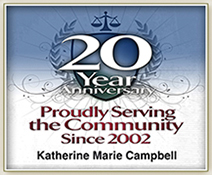How Long Does a Divorce Process Take?

When starting your divorce journey, it can be confusing and overwhelming. It can also feel like you have very little control over your own life. Predicting the duration of a divorce is very difficult because so many factors influence that answer. However, understanding the variables over which you have control, allows you to minimize the duration of your divorce and gives you more say in the outcome and duration of the process.
Gaining that control is easier when you choose an out of court process such as a mediated or collaborative divorce. A collaborative divorce involves the family working together with their lawyers, coaches, and a financial neutral to resolve their marital issues. The team supports the family in using open communication, cooperation, and transparency. These tools create an efficient process to help families resolve conflict and create resolution. Focusing on conflict reduction gives families more ownership and control over this process. This is crucial because conflict is one thing that will extend a divorce process and increase your costs more quickly than anything else.
Both the divorcing couple and the professionals have more control over the divorce timelines in either a collaborative or mediated divorce than they would in a court process. Out-of-court processes are often quicker because the mediation or collaborative divorce team focus on your divorce alone whereas courts handle hundreds of divorces at the same time.
In addition to conflict, other factors impacting the duration of your divorce are the complexity of the property division, income sharing, and parenting issues and the speed at which the family reaches decisions.
Collaborative and mediated divorces engage the family with resources families need to co-create a resolution for their divorce issues. They receive legal advice and suggestions regarding options, coaching support to guide communication and provide child development information, and a neutral financial to prepare necessary financial data and analysis to make informed choices about financial proposals.
This process fosters problem-solving. Conflict is normal in any divorce process. Without resources to help manage and resolve conflicts, divorce process conflicts often escalate creating further delays. The lack of support can increase the emotional and financial toll on each parent.
Out-of-court divorce processes try to avoid prolonged and costly court battles. These processes allow for a smoother, faster resolutions for couples along with some skill development to help you with future conflicts as they arise. . .because they will.
By bringing resources, time, and space to the out-of-court divorce processes, your divorce moves more quickly. My experience is that unresolved conflict creates delays. Out-of-court processes recognize and respect each individual’s needs and make sure that they are considered as part of any divorce agreement.
By prioritizing conflict resolution, open communication, and problem-solving that considers each person’s needs couples navigate the process efficiently, effectively, and much more quickly.
At Campbell Family Law offices, Kathy Campbell helps her clients divorce differently because they deserve more involvement in the outcome. She only works in the out-of-court processes of mediation, collaborative divorce, and collaborative mediation to ensure clients have the flexibility they need and want.
Contact Kathy today to see how she can help you and your spouse divorce peacefully and transparently.
Note: This information is general in nature and should not be construed as legal/financial/tax/or mental health advice. You should work with your attorney, and financial, mental or tax professional to determine what will work best for your situation.

